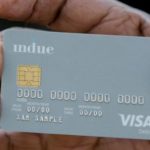Can I Pay With Large Numbers of Coins in Australia?

It’s never nice to receive a fine, whether it be a parking fine, speeding ticket or penalty from the tax office.
But some years ago now, an Adelaide man who was unhappy about receiving a $60 parking fine from his local council sought to take revenge by paying the lot by attending the office of Adelaide City Council and emptying a sack of 1200 five cent coins onto the counter.
The man then stated to the hapless receptionist, ‘Can I have a receipt, please?’ – content with his ‘revenge’.
However, the receptionist got hers back, telling the man she could not process such a large number of coins, and refusing to do so.
Before leaving without a receipt, or his coins, the man let fly, telling the receptionist:
‘You’re part of a corporation I don’t want to deal with’.
Not the only time
In January 2017, disgruntled businessman Nick Stafford attended an office of the Department of Motor Vehicles (DMV) in Cedar Bluff, Virginia to pay an outstanding $3,000 tax bill armed with five wheelbarrows full of rolled coins, weighing a total of 726 kilograms.
He was accompanied by 11 people to help him undertake the task, which he was intent on seeing through to finality.
Under the United States Coinage Act, all coins are “legal tender for all debts, public charges, taxes and dues” – meaning DMV staff were compelled to accept and count the currency; a task which took them seven hours to fulfil.
And in September 2019, 39-year old British Matthew Lemm drove to meet a bailiff to pay a six-year old fine for not filing the correct paperwork when he sold his car.
By that time, the debt had ballooned to £1,200, and Mr Lemm was determined to make the collection as difficult as possible.
The businessman filled the boot of his car with 120,000 one-pence coins, using a bucket to empty them onto the ground before the bewildered bailiff.
Needless to say the bailiff was not impressed, and he refused to process the payment.
But what is the law when it comes to accepting coins in Australia?
Can I pay for goods and debts using coins?
The Currency Act 1965 (‘the Act’) regulates the use of currency throughout Australia.
Unlike the situation in the United States, section 16 of the Act sets limits on the use of Australian legal tender to make payments – whether they be for goods, services, debts or anything else.
The section provides that:
- You can only use five, ten, twenty or fifty cent denominations – or a combination of those denominations – to pay for up to $5,
- You can only use one or two cent denominations to pay for up to 20 cents,
- You can only use denominations of fifty cents up to denominations of less than $10 (ie currently up to $5) to pay for up to ten times the value of those denominations, and
- You can only use $10 denominations to pay for up to $100.
So, by way of examples, money is not legal tender where you seek to pay:
- 101 five cent coins for something worth $5.05,
- 51 ten cent coins to pay for something worth $5.10,
- 26 twenty cent coins for something worth $5.20,
- 11 fifty cent coins for something worth $5.50,
- 21 one cent coins for something worth 21 cents,
- 11 two cent coins for something worth 22 cents,
- 11 five dollar notes for something worth $55, or
- 11 ten dollar notes for something worth $110.
Is a business required by law to accept legal tender?
There is no law in Australia which compels a business to accept legal tender for the provision of goods or services.
So, for example, a business is well within its rights to refuse 99 five cent coins for the an item it is selling, or service it is providing, for the sum of $5.
In fact, businesses are at liberty to refuse to accept cash at all – and to determine their methods of payment.
What about paying a debt?
And although the same rule applies to money that is owed, refusing to accept payment for a debt could potentially have adverse consequences if the matter proceeds to hearing before a court or tribunal.
At the end of the day, it’s best to use common sense and not make unreasonable demands, such as taking up a store owner’s time and holding up other customers by trying to pay for something worth $5 with 100 five cent coins, and avoid being on the receiving end of his or her offensive language.






